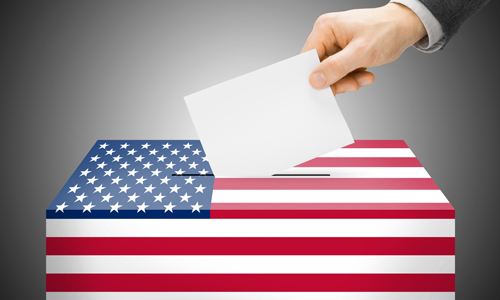
The Presidential candidacy is entering a critical phase, with polls carrying increasing weight for the frontrunners on both Democratic and Republican tickets, and candidates who don’t fancy their chances dropping out of the race altogether. There’s still a year to go before the elections, and much is riding on the candidates’ ability to harness digital technology to reach all-important swing voters.
A recent survey from Harris Poll asked which candidates have the most effective digital campaigns. Some 37% of respondents said Donald Trump was wielding the technology better than rivals on both sides, with Bernie Sanders and Hillary Clinton in second and third place (21% and 20% respectively). Ben Carson is not far behind them with 18%. Less than 10% of respondents felt Jeb Bush and Marco Rubio had used digital strategies effectively.
Of course, digital marketing isn’t everything, and it’s more important to the out-of-leftfield candidates like Sanders and Trump, who lack mainstream political support and rely on building grassroots campaigns, than it is to, say, Bush, who will be focusing his financial clout on data-driven TV adverts as we head into the final year of campaigning. In 2016, small shifts in voter perspective will become critical, and TV campaigning will need to gain ground not already taken by digital efforts.
Online political campaigns have become the cornerstone of this election in the early stages, galvanizing politically engaged voters behind their chosen candidate. Still, TV remains the most powerful tool for communicating with the wider electorate, with 48% of survey respondents claiming it’s more effective at persuading them to vote (or shop) than any other channel. Print advertising ranked second (38%), followed by email (35%); social media (22%); radio (15%); mobile (12%); banner ads (9%); and SMS messaging (7%).
The research was not limited to politics. It also gathered data on consumers shopping habits, and how they preferred to receive information from companies. Interestingly, the figures on preferred e-commerce marketing correspond roughly with those on political candidates. As America shops for its next president, mobile and social networking are increasingly vying with traditional channels like TV for the attention of the electorate. Will the digital natives win out, propelling an outsider, whether on the left or right, into the White House? Or will TV’s remarkable tenacity as the dominant form of information-spreading win out for the established political dynasties fighting this race? Who knows - but it’s going to be a long 12 months.